A motivational speakertrainer has been hired to increase sal
A motivational speaker/trainer has been hired to increase sales output for computer salesmen. In order to determine whether the motivational training is effective the sales for the week before and the week after the speaker’s presentation were recorded. Testing the intervention:
Identify the appropriate statistical test to determine whether the motivational training had an effect.
Carefully state the null and alternative hypotheses for the statistical test.
Perform the test at the 5% level of significance after determining the p-value for the test. Make sure to state your decision.
Carefully state any conclusions.
Estimate the effect of the training on sales with a point estimate and a 95% confidence interval for the difference between the before and after means.
Construct a 90% confidence interval for average sales after the presentation.
Salesman
Before
After
Sally
0
4
Nan
2
2
Paul
2
5
Mike
5
4
Hank
2
7
Nancy
1
5
Joe
4
10
Red
5
12
Buck
2
________________
We wish to compare the weights of the truckloads of gravel delivered by two companies (Palatka and Jacksonville).
Perform a two sided test of the hypothesis that the average delivered weights (in tons) for the two companies are equal (based on the data below). Let the level of significance be 10%. Determine the p-value, perform the test, and state your conclusion
Construct a 90% confidence interval for the difference in average weight for the two companies.
Palatka
Jacksonville
2.8
2.4
3.0
2.8
2.7
2.5
2.9
2.9
2.7
2.5
2.9
2.9
2.9
2.7
3.0
2.5
2.8
___
A company is interested in whether customers like its new soup. In a taste test with 200 participants 50 thought the soup was “very good”, 80 thought it was “good”, 30 thought it was “fair” and the remainder thought it was “awful”.
Construct a 95% confidence interval for the percent of customers who will rate the soup as “good” or “very good”.
The same soup with more salt in it was taste tested by 120 participants (a different group) of which 8 thought the soup was “awful”.
A point estimate for the percentage of customers that will think the more-salt soup is “awful” = _________________
A point estimate for the percentage of customers that will think the regular salt soup is “awful” = ________________
At the 1% level of significance test whether the percent of potential customers who think the soup is “awful” is the same for the two soups (regular compared to extra salt) versus the alternative that they are different. Be sure to state the null and alternative hypotheses and carefully justify your decision.
Using the data set ScrewData1:For line 1
Estimate the mean diameter with a 90% confidence interval.
Estimate the diameter standard deviation with a 90% confidence interval.
Test the hypothesis that the standard deviation = 0.015 versus the alternative that the standard deviation is greater than 0.015
A 95% tolerance interval for 90% of screws is: ________, _________
A 90% prediction interval for a random selected screw’s diameter is: ____ , ___
Assess the normality of the sample: that is, is this a sample from a normal population? Justify.
Specifications call for the diameters to be within 0.01 of the 1.0 cm target diameter.
Estimate the percentage within specs with a point estimate and with a 95% CI.
Test the hypothesis that more than 50% are out of specs. Note H0: p = 0.50; Ha: p > 0.50
Compare the two production lines with respect to diameter.
Are the population standard deviations the same for line 1 and line 2 diameters?
Test the hypothesis that the mean diameters are equal (justify your choice of test).
90% CI for the difference between mean diameters: _______ , ________
Comment on “the normality assumption”.
Test the hypothesis that the proportion out of spec is the same for the two lines.
95% CI for the difference between the proportion out of spec for the two lines.
Line1D
Line2D
1.043
1.018
1.007
0.972
1.046
0.974
0.996
0.999
1.024
1.013
1.007
0.999
0.998
0.95
1.002
0.991
1.057
0.984
1.006
0.972
1.049
1.015
1.029
0.993
1.006
1.039
1.033
0.998
1.047
0.987
1.03
0.948
1.008
1.003
1.052
1.023
1.038
0.964
1.028
1.002
1.02
0.994
1.051
0.983
1.04
1.004
0.989
0.971
1.031
1.029
0.977
0.978
1.038
1.021
1.038
1.002
0.989
1.03
1.025
1.017
0.985
1.021
1.027
0.983
1.01
0.975
1.023
0.979
0.973
0.984
1.031
0.977
0.991
1.008
1.075
0.997
1.015
0.998
1.014
1
0.992
0.979
0.993
0.994
0.994
1.023
0.987
0.982
1.026
1.003
0.991
0.991
1.022
0.977
____________________________
Below are data from two software support centers. The goal is “resolution of the issue”.
Test the hypothesis that the percentage of calls resolved is the same at the two centers.
95% CI for difference between percentage resolved.
Point and confidence intervals for both centers.
Test the hypothesis that more than 50% are resolved in Palatka.
Center
resolved
Not resolved
Palatka
50
25
Orange park
120
90
| Salesman | Before | After |
| Sally | 0 | 4 |
| Nan | 2 | 2 |
| Paul | 2 | 5 |
| Mike | 5 | 4 |
| Hank | 2 | 7 |
| Nancy | 1 | 5 |
| Joe | 4 | 10 |
| Red | 5 | 12 |
| Buck | 2 |
Solution
H0: mu1=mu2
Ha: mu1 <mu2
Left tailed test.
Group Group One Group Two
Mean 2.56 6.13
SD 1.74 3.36
SEM 0.58 1.19
N 9 8
The mean of Group One minus Group Two equals -3.57
t = 2.8020
df = 15
standard error of difference = 1.274
p =0.0067
Since p <alpha reject null hypothesis and accept mu1 < mu2
Or motivational training is effective
------------------------------------
2) H0: mu 1= mu2
Ha: mu1 not equals mu2
Two tailed test
alpha = 0.1
Group Group One Group Two
Mean 2.856 2.650
SD 0.113 0.200
SEM 0.038 0.071
N 9 8
df = 15
standard error of difference = 0.078
The mean of Group One minus Group Two equals 0.206
90% confidence interval of this difference: From 0.067 to 0.345
The two-tailed P value equals 0.0182
Since p >alpha reject H0
Two means are not equal
---------------------------
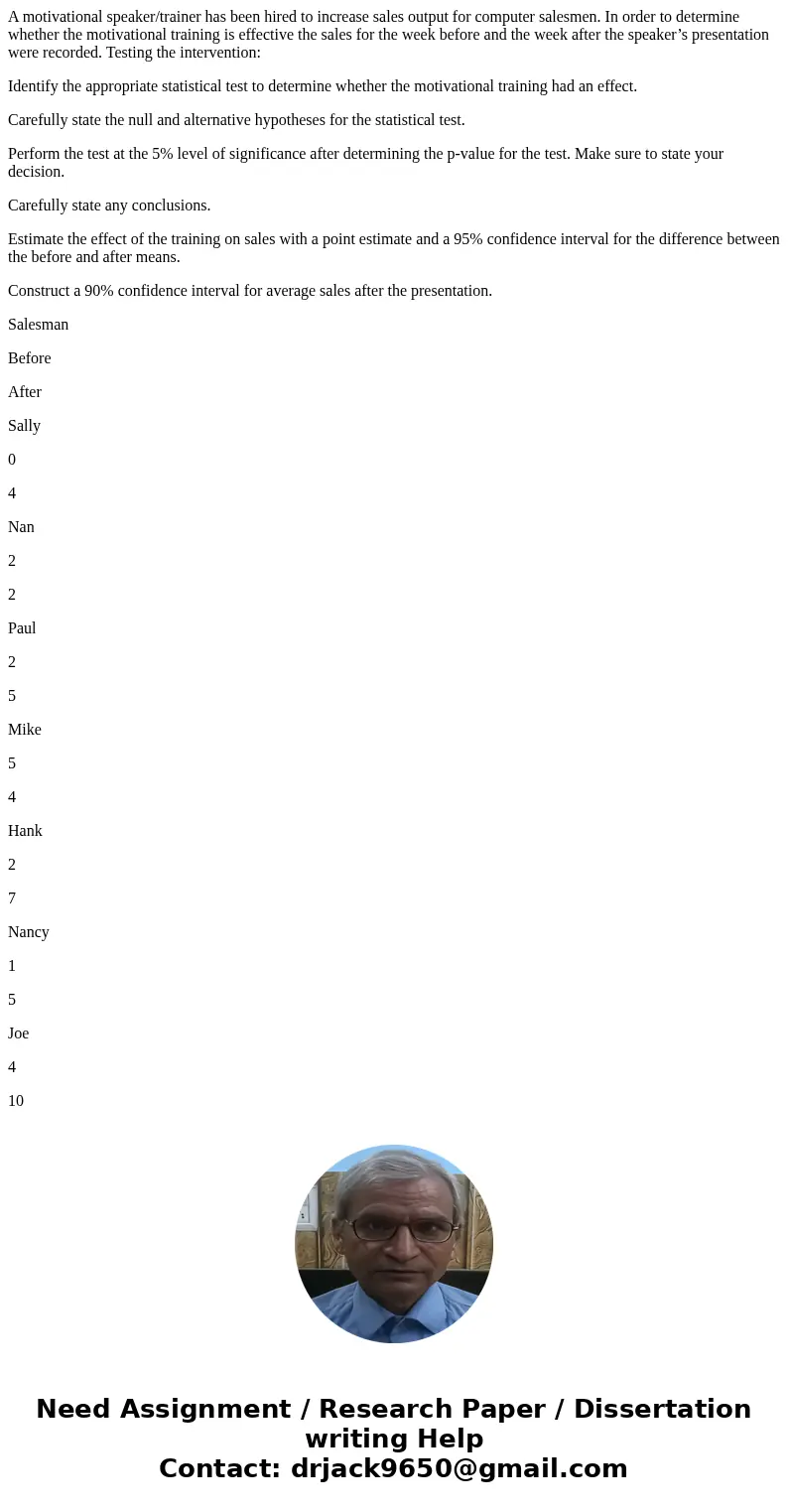
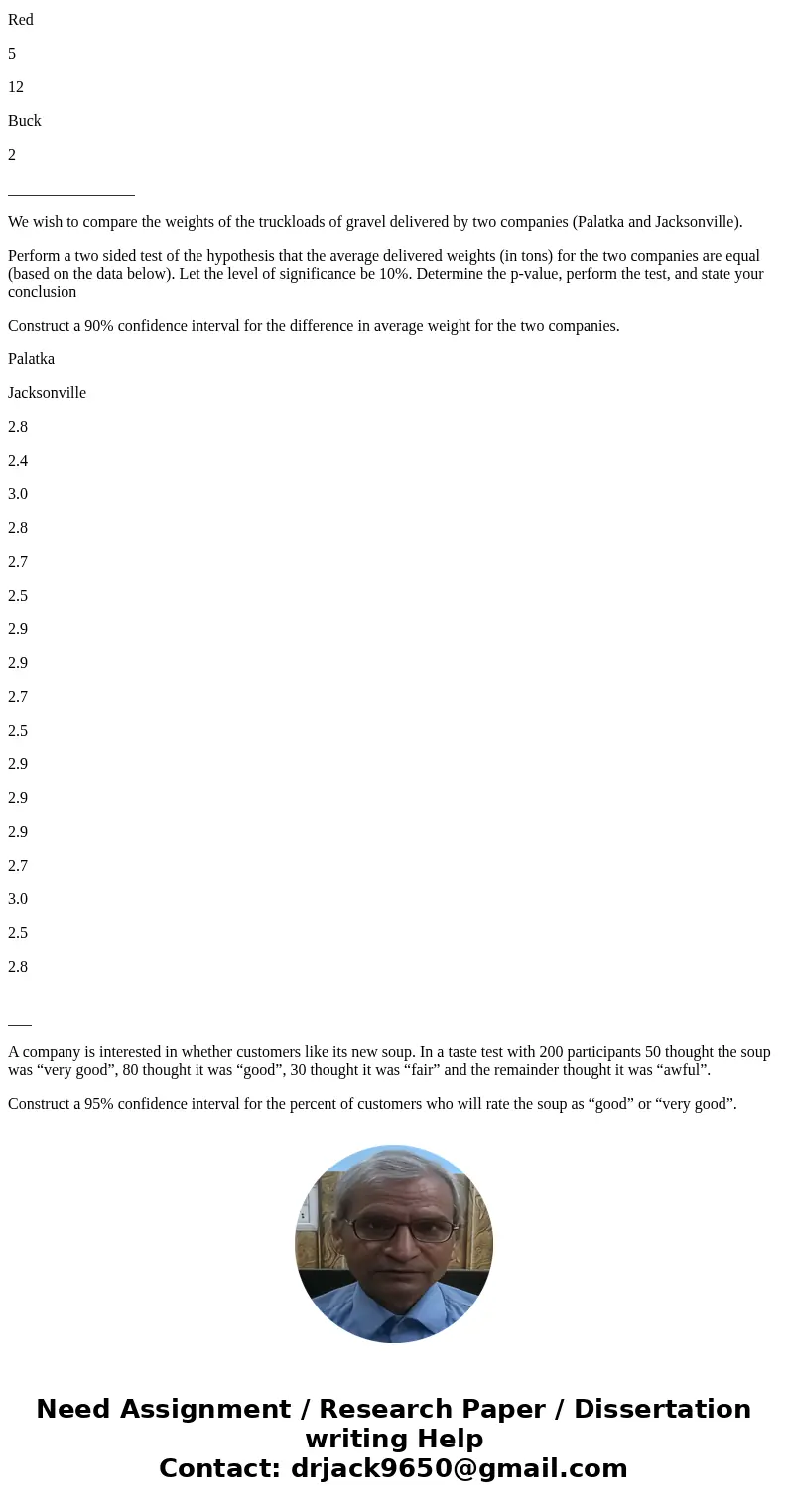
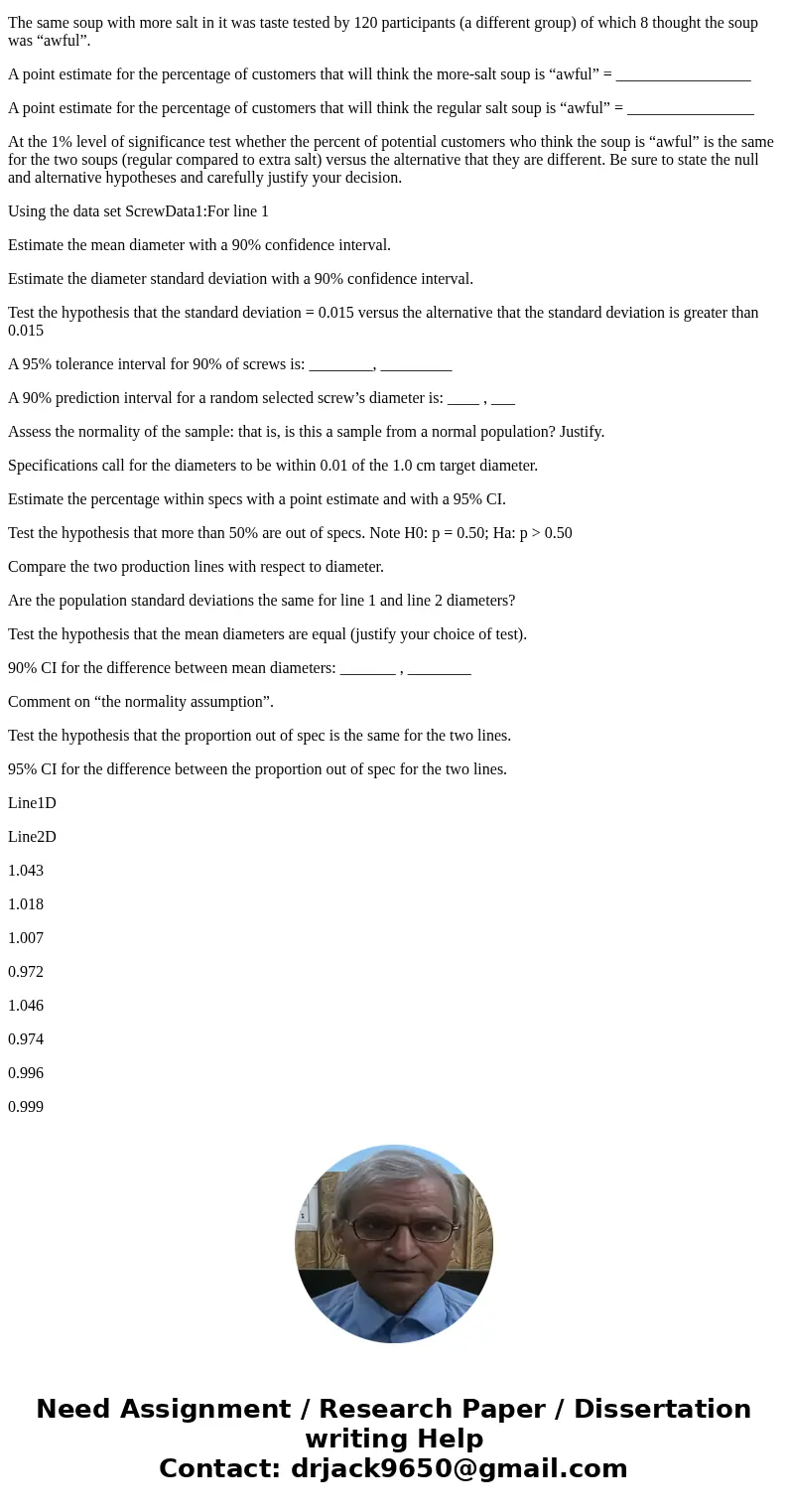
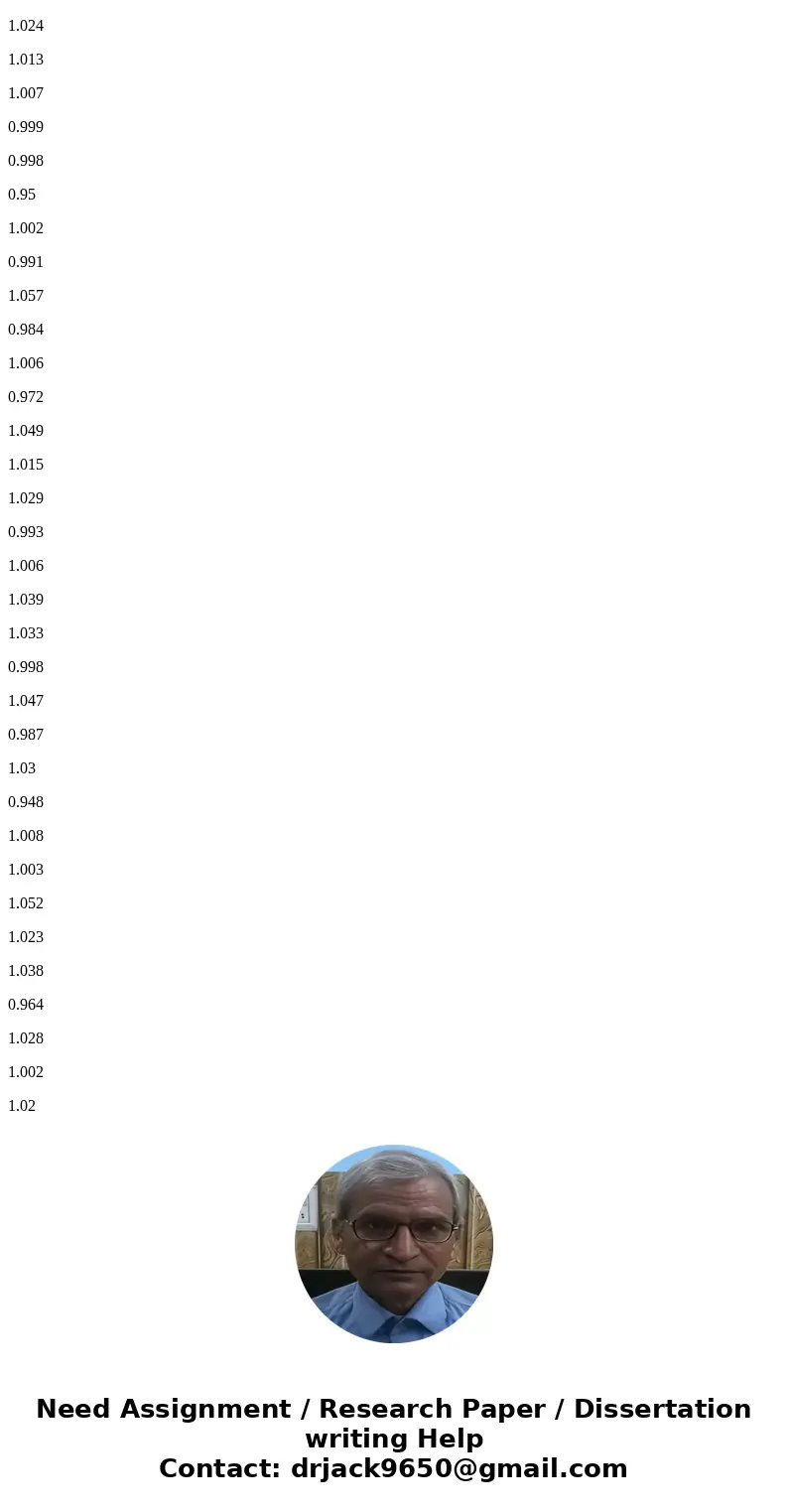
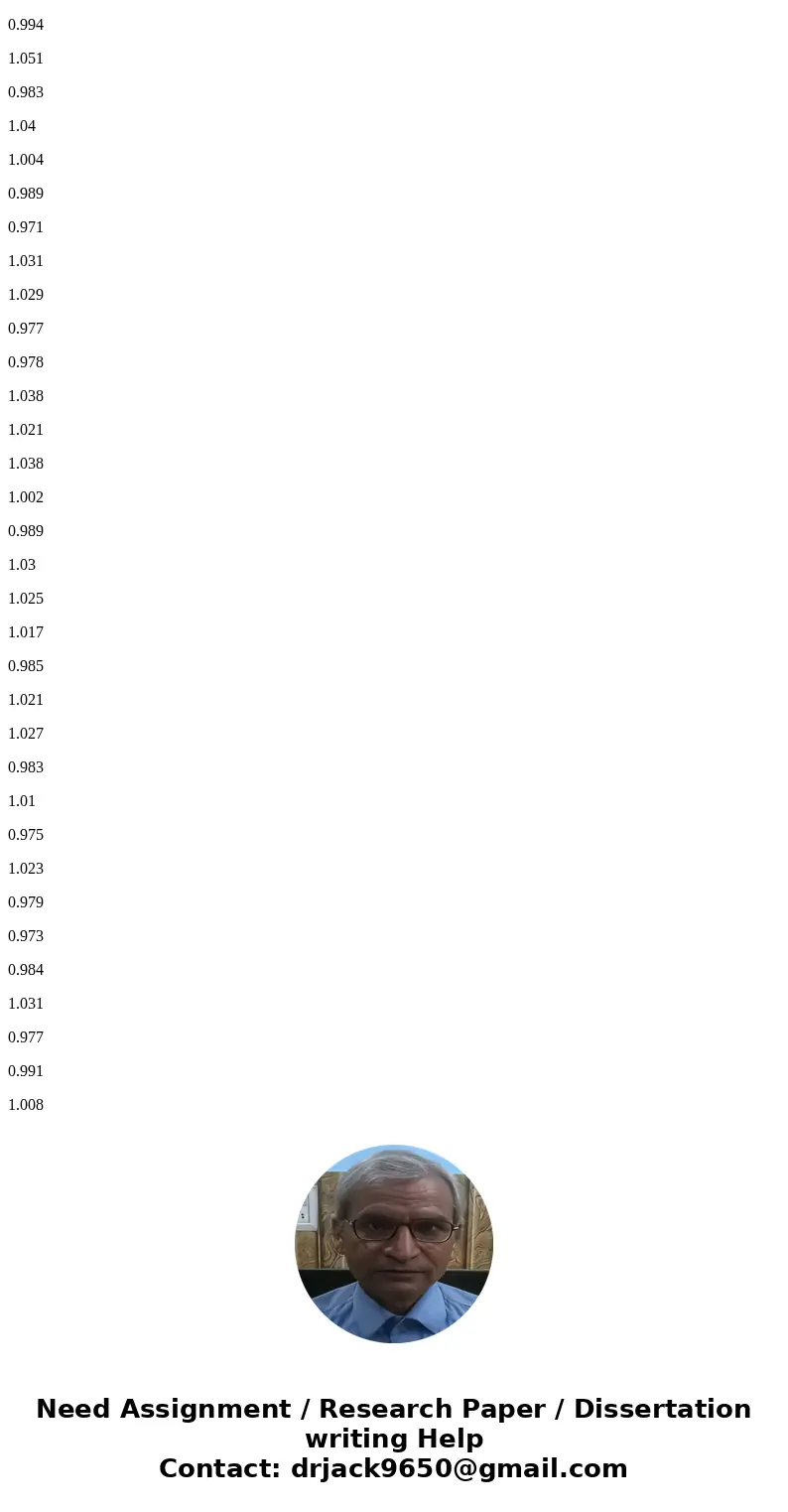
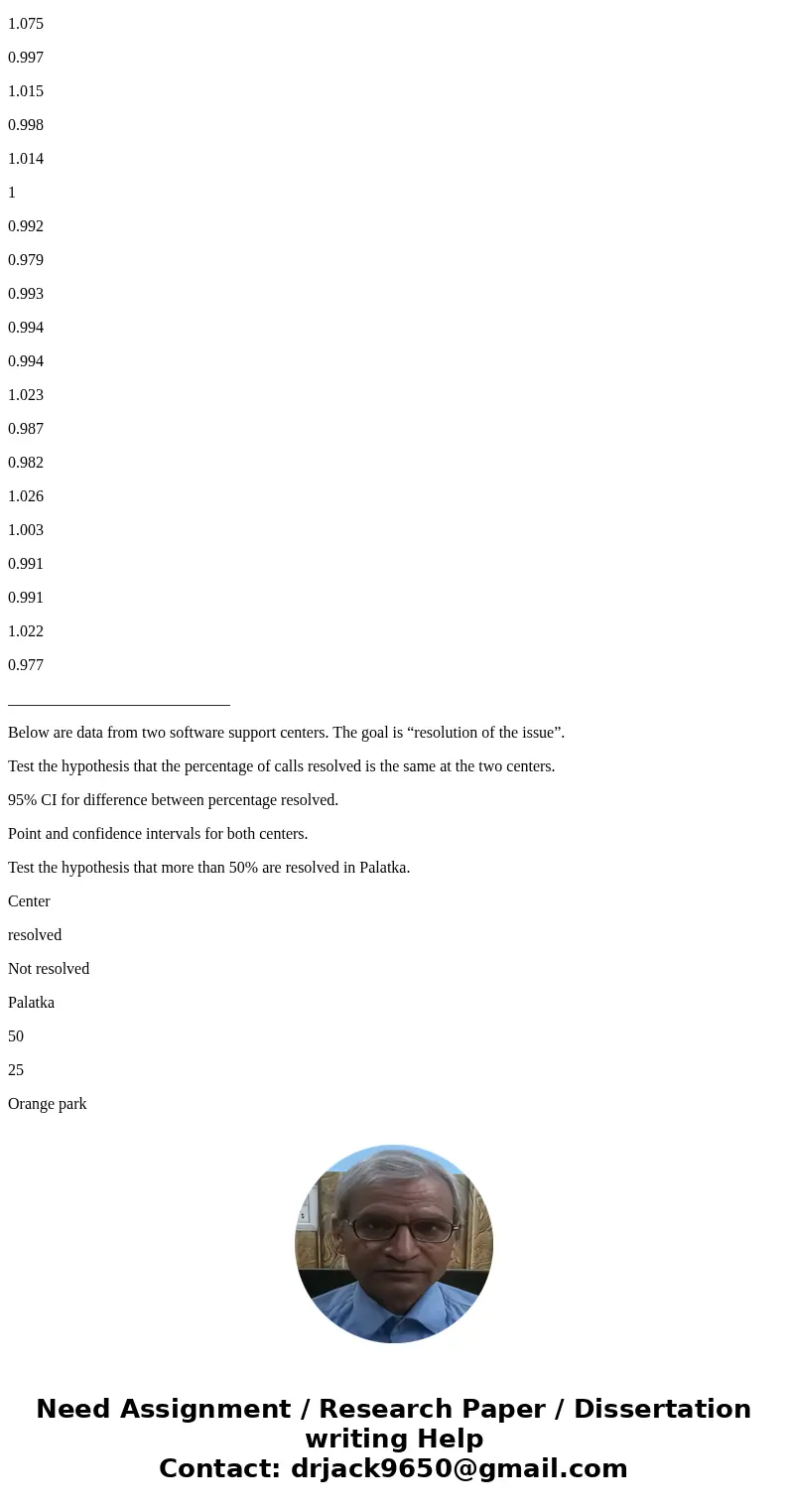
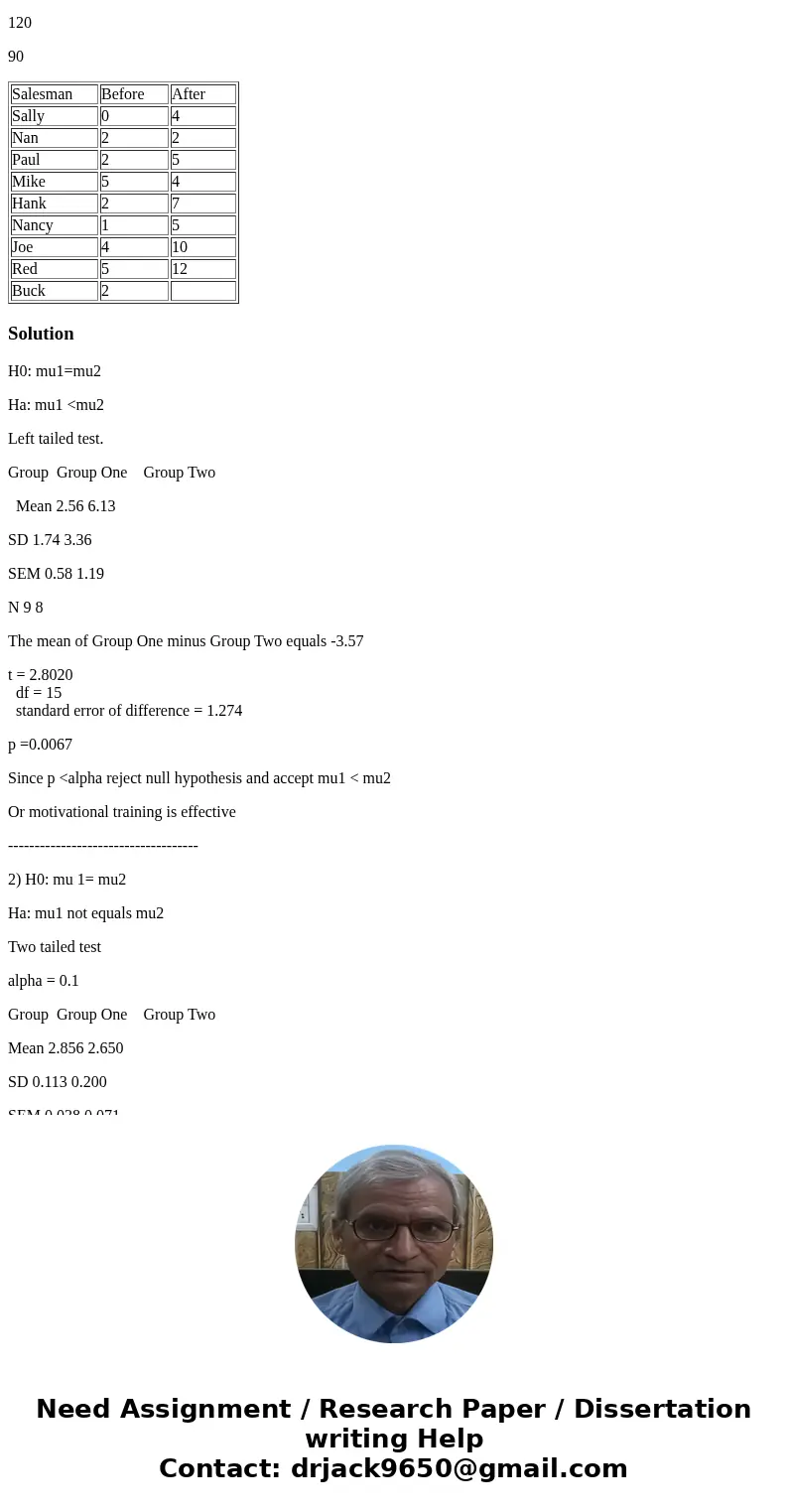
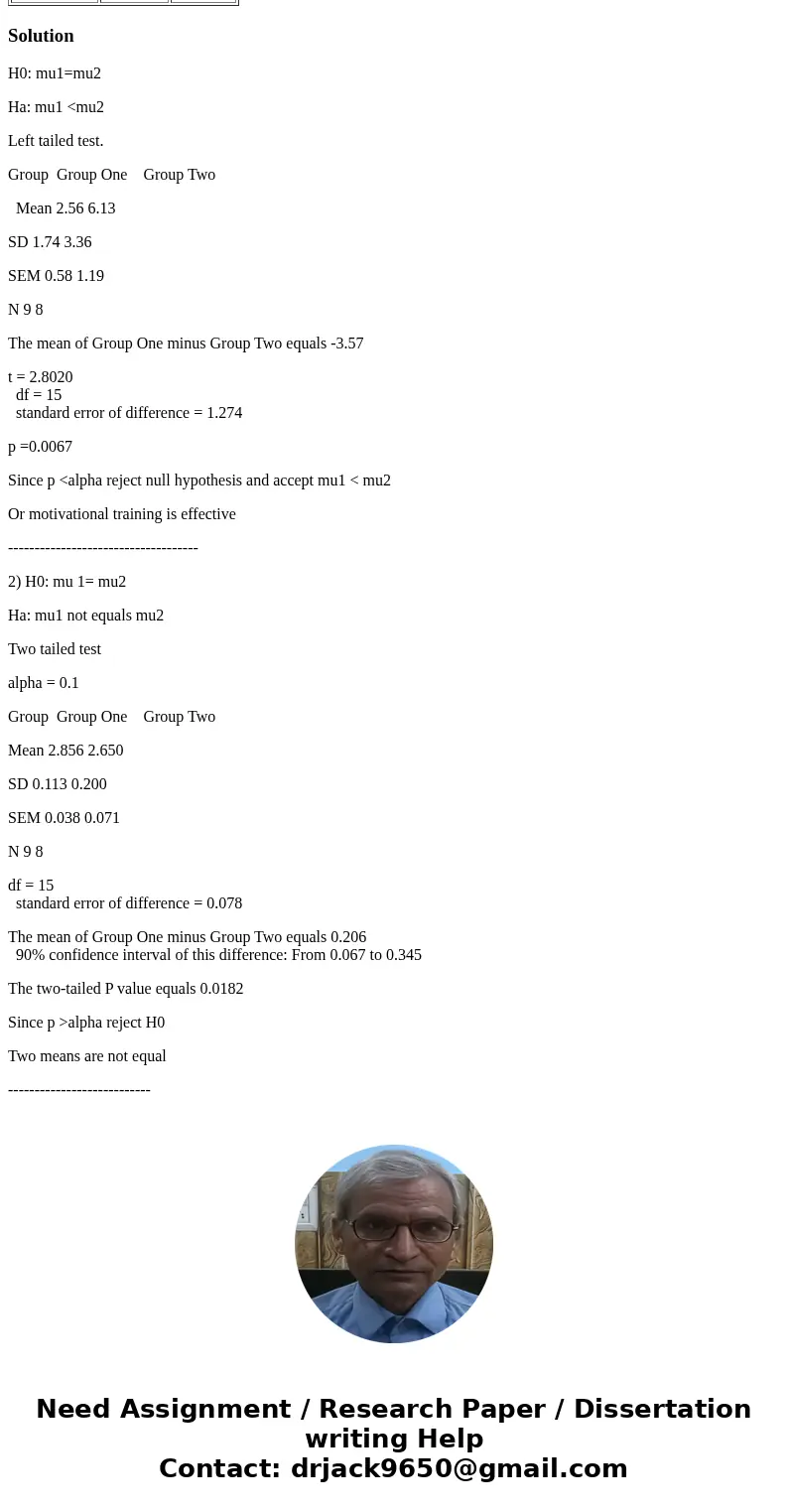
 Homework Sourse
Homework Sourse